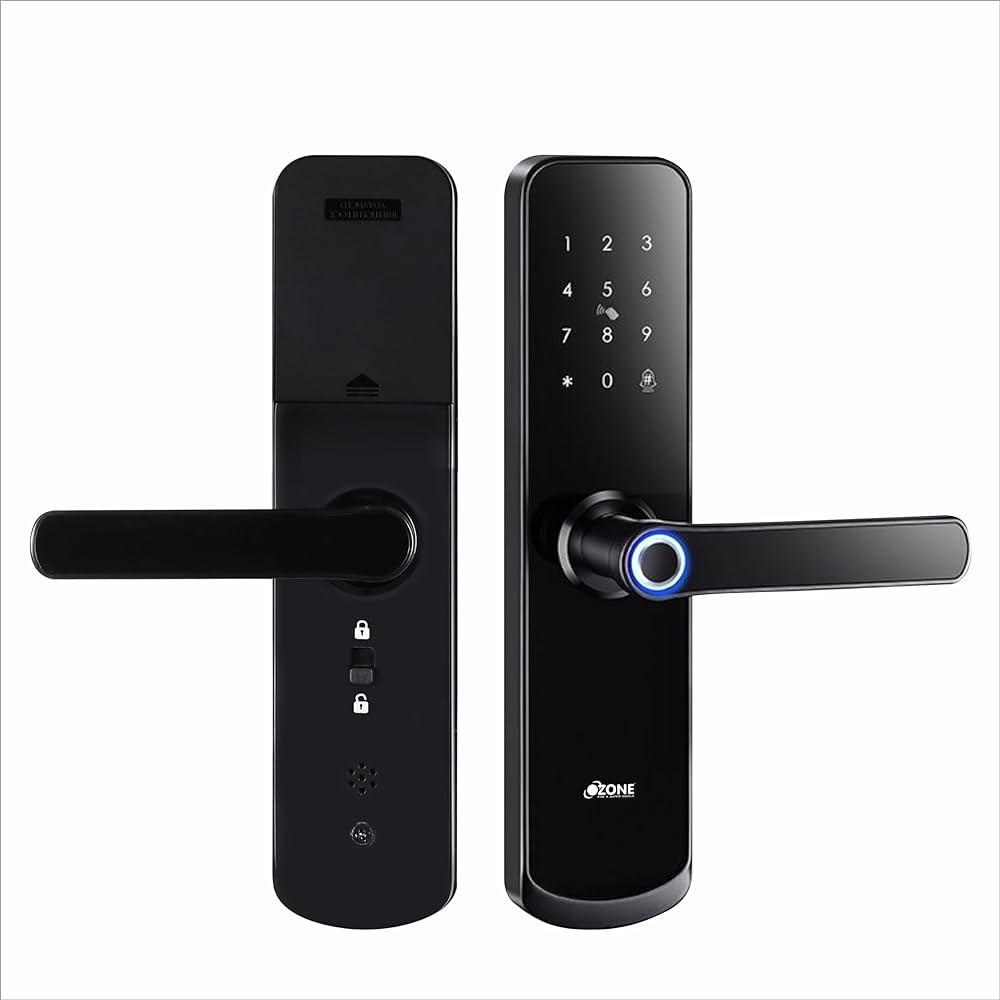If you’ve ever wondered about the evolving landscape of home security, consider this: the global smart lock market is projected to reach a value of over $3 billion by 2027. Now, when it comes to distinguishing between a digital lock and a smart lock, the differences go beyond mere nomenclature. Understanding these disparities can help you make informed decisions when securing your space. Check Smart Lock in Hyderabad, Gurgaon and Delhi
Basic Functionality
- When comparing the basic functionality of digital and smart locks, it’s essential to understand the fundamental operations that differentiate these two types of security devices. Digital locks typically require a code or key to grant access, whereas smart locks utilize wireless technology, such as Bluetooth or Wi-Fi, to provide keyless entry through a smartphone or other authorized devices.
- The installation process for digital locks is usually straightforward, involving mounting the lock onto the door and programming the access code. On the other hand, smart locks may require a more intricate setup that involves connecting the lock to a home automation system or a dedicated mobile app.
- In terms of battery life, digital locks tend to have longer-lasting batteries since they primarily rely on inputting a code for access. Smart locks, however, utilize wireless connectivity and may require more frequent battery changes or recharging to ensure uninterrupted operation. It’s important to consider these factors when deciding between a digital or smart lock for your security needs.

Connectivity Options
- Moving from the discussion on basic functionality to connectivity options, the distinction between digital and smart locks becomes more evident in how they interact with external systems and devices. When it comes to connectivity, smart locks typically offer advanced features such as wireless compatibility and remote access.
- Wireless compatibility allows smart locks to connect to your home’s Wi-Fi network, enabling you to control the lock remotely using a smartphone app or a web interface. This feature enhances convenience and flexibility, as you can lock or unlock your door from anywhere with an internet connection.
- Remote access is another key aspect of smart locks’ connectivity options. With remote access, you can grant access to visitors or service providers even when you aren’t physically present at the location. This can be particularly useful for managing access to your property while you’re away or for allowing entry to trusted individuals when you’re unable to answer the door in person. In essence, the connectivity options offered by smart locks elevate the level of control and convenience you have over your home security system.
Security Features
- Smart locks incorporate cutting-edge security features that enhance the protection of your property. One of the key security features of smart locks is biometric authentication, which provides an advanced level of security by using unique physical attributes such as fingerprints or facial recognition to grant access. This technology ensures that only authorized individuals can unlock the door, making it extremely difficult for intruders to bypass the system.
- Moreover, smart locks utilize encryption technology to safeguard the communication between the lock and your devices. Encryption algorithms encode the data transmitted between the lock and the connected app, ensuring that even if intercepted, the information remains secure and indecipherable to unauthorized parties.
User Access Control
- To enhance user access control, smart locks offer customizable permission settings that allow you to precisely manage who’s entry privileges to your property. With biometric authentication capabilities, smart locks can verify an individual’s identity based on unique biological traits such as fingerprints or facial recognition. This advanced feature adds an extra layer of security, ensuring that only authorized individuals can access your property.
- Moreover, smart locks provide the convenience of remote monitoring, allowing you to oversee access to your property from anywhere at any time. Through a connected mobile app or web interface, you can monitor who enters and exits your premises, receive real-time notifications of any unauthorized access attempts, and even remotely grant or revoke access to individuals.
Integration Capabilities
- Enhancing user access control through smart locks can involve their integration capabilities, allowing for seamless connectivity with other smart home devices and systems. Smart locks with integration capabilities offer advanced features such as remote monitoring and automation capabilities.
- Through remote monitoring, users can check the status of their locks and control access to their homes from anywhere using a smartphone or a web interface. This feature enhances security by providing real-time updates on who enters or exits a property.
- Moreover, smart locks with automation capabilities can be integrated into broader smart home systems. For instance, they can work in tandem with smart lighting systems, thermostats, or security cameras. This integration enables users to create customized automation scenarios.
For example, unlocking the door can trigger the lights to turn on, creating a welcoming environment upon entry. By integrating smart locks with other devices, users can enhance both convenience and security in their homes, making their daily routines more efficient and secure. Also Read Digital door lock in Hyderabad , Delhi, Gurgaon
Conclusion
In conclusion, while both digital and smart locks offer keyless entry solutions, there are key differences between the two. Digital locks primarily rely on numerical codes for access, whereas smart locks offer a wider range of connectivity options and advanced security features such as biometrics and remote access capabilities. Additionally, smart locks provide more flexibility in user access control and integration with other smart home devices. Ultimately, the choice between digital and smart locks depends on individual needs and preferences.